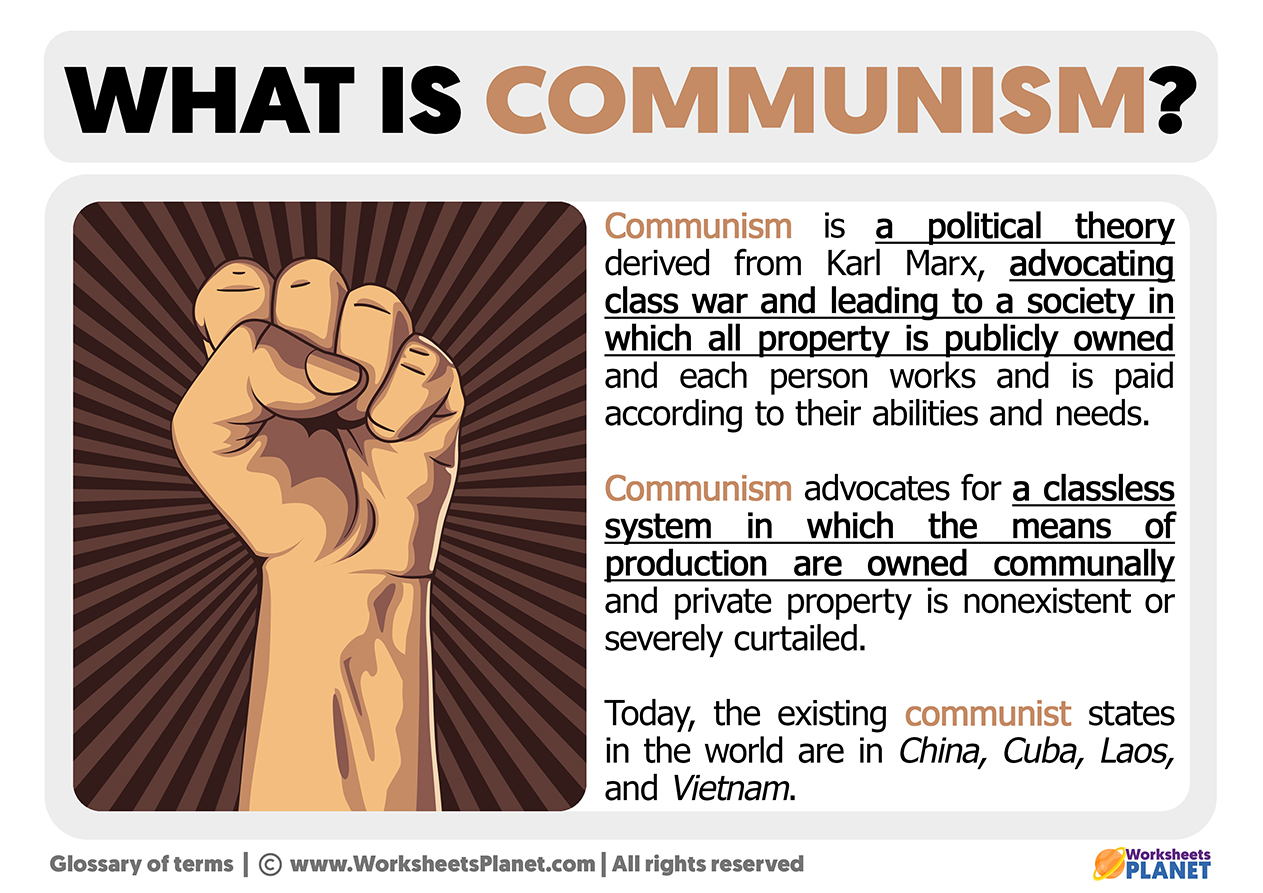Communism is a political system that emerged in the 19th century and is based on class struggle and shared ownership of the means of production. Communism is also the doctrine and political philosophy inspired by that system.

This doctrine was born as a criticism of capitalism and the socioeconomic inequalities of the market derived from the distribution of wealth and private property. According to the communists, all of this creates a gap between social classes, against which they suggest the abolition of private ownership of the means of production to eliminate the division between rich and poor.
In its origins, communism had drawn on various theoretical sources. Still, when the German thinkers Karl Marx and Friedrich Engels published the Manifesto of the Communist Party in 1848, the movement took a revolutionary direction. Marxism understands history as a permanent class struggle that arises from private property and the stratification of society based on the relations of production, that is, into exploiters and exploited.
Many experts consider communism an unviable political and economic model. Critics have been constant for more than a century: some question Marxist theories, and others question the effectiveness of their application throughout the 20th century or point to its negative consequences. In general terms, critics consider eliminating social classes as ideological since they affirm that the communist revolution only generates new dynamics of exploitation. In addition, the planned economy and the end of entrepreneurship would reduce productivity and innovation, contributing to economic stagnation.

